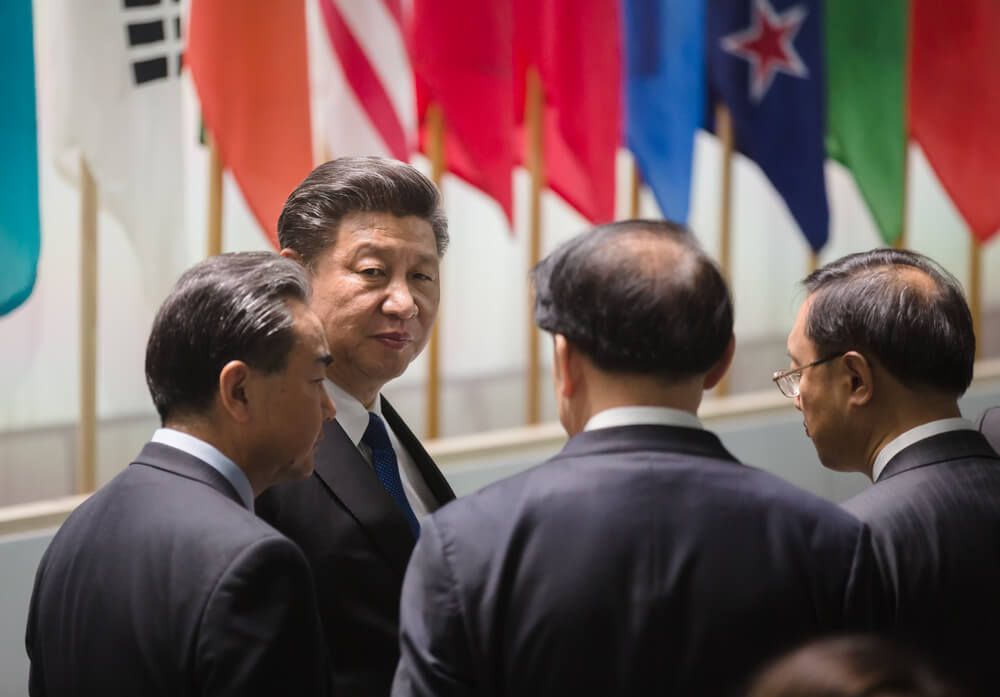China's refusal to participate in the peace summit on Ukraine in Switzerland in mid-June is a manoeuvre towards more open support for Russia, which it has previously (only declaratively) kept at arm's length.
Beijing has buried hopes that the forthcoming summit in Lucerne could bring a breakthrough in resolving the Ukrainian crisis through strong international pressure on both sides to enter into negotiations.
This pressure will definitely not materialise, despite neutral Switzerland's expectations that its mediation, in which it has invested a great deal of diplomatic energy, could bring together the largest number of countries to date in the effort to bring peace to Ukraine.
"I'm interested in getting help from China because China has great relations with Russia," said Swiss Foreign Minister Ignazio Cassis in Beijing last February, when he spoke with Chinese Foreign Minister Wang Yi at the beginning of his mission to organise a peace summit.
However, Beijing ended the hopes of the summit organisers last Friday because "the arrangements for the meeting still fall far short of China's requests and the general expectations of the international community."
China's permanent exit from the process
Although Beijing is de facto on Russia's side regarding the conflict in Ukraine, there was reason to believe that it might attend the meeting in Switzerland.
Of the three previous major international meetings dedicated to finding a peaceful solution for Ukraine, high-ranking Chinese representatives attended one in Jeddah, Saudi Arabia, in August last year.
They did not attend the first conference in Copenhagen in June 2023 or in Malta last October, but they have since given indications that they will continue to participate in the process. The cancellation of their arrival in Switzerland, however, was very specific.
China has now made it quite clear that it is finally abandoning this kind of search for a peace solution that was previously on the table
With the usual emphasis that no progress can be made without Russia's involvement, China has now made it quite clear that it is finally abandoning this kind of search for a peace solution that was previously on the table.
Its withdrawal will undoubtedly lead to the cancellation of some other participants, so the Swiss organisers can hardly hope for the participation of 106 state delegations, which Ukrainian President Volodymyr Zelensky recently spoke about in Singapore.
Open support for Russia
Beijing has thus undertaken a major manoeuvre and may have initiated a new phase in its handling of the Ukrainian crisis.
Given Moscow's explicit rejection of holding peace conferences without its presence and based on the platforms proposed by Kyiv, China is now showing full sympathy for such a Russian approach.
Ukrainian leader Zelensky recognised this as China's shift from declarative neutrality to open support for Moscow.
"It is unfortunate that such a big, independent, powerful country as China is an instrument in the hands of Putin," said Zelensky at the Shangri-La Dialogue in Singapore.
His unusually harsh rhetoric towards Beijing, in which, for the first time, he openly accused Beijing of supplying military material to Russia, shows that he is convinced that Beijing is leaving the former zone of declarative neutrality and is openly siding with Moscow.
China's decision came just two weeks after the meeting between Vladimir Putin and Xi Jinping in Beijing
Meanwhile, Zelensky demonstrated his abandonment of attempts to communicate with the Beijing leadership, aiming to keep them in a neutral position while simultaneously persuading them to actively pursue a peaceful resolution.
China's decision came just two weeks after the meeting between Vladimir Putin and Xi Jinping in Beijing, and it is certainly partly the result of that meeting. However, it is by no means exclusively the result of Russian pressure, and, in particular, it does not reflect the view that China has become an instrument in Moscow's hands.
However, it is primarily Chinese interests that determine relations between the two countries, not only in relation to the Ukrainian crisis but also globally.
Competitive peace process
One of these interests could be China's intention to take a more decisive lead in the search for peace in Ukraine and to assert itself as the principal mediator. Last week, Foreign Minister Sergei Lavrov stated that Russia has already welcomed Beijing's intentions as a model according to which “the legal interests of all parties need to be protected.”
At the same time, the cancellation of China's participation in the summit in Switzerland could mean that Beijing is already in the process of launching a parallel, competing peace process in which it intends to play a leading role.
 Beijing needs a major global diplomatic breakthrough after a long period of peripheral involvement in major crises, particularly in the Middle East
Beijing needs a major global diplomatic breakthrough after a long period of peripheral involvement in major crises, particularly in the Middle East
China's expectation is based on Russia's agreement to participate in a Beijing-led process, a feature that previous peace attempts did not have. Beijing also believes that it is capable of re-establishing diplomatic communication with Kyiv, despite having suffered a serious setback with the cancellation of the Swiss summit.
Beijing needs a major global diplomatic breakthrough after a long period of peripheral involvement in major crises, particularly in the Middle East.
The momentum it achieved last March by brokering the thaw between Iran and Saudi Arabia has stalled, and the conflict in Gaza and the crisis in the Red Sea have pushed China off the main stage as it has shown no effort to engage in their resolution.
Beijing sees an interest in mediating regarding Ukraine as a way to level the balance of influence with the West, as the West dominates diplomatically in almost all current global crises.
Therefore, Ukraine could soon become a field for direct diplomatic competition between Beijing and Washington, which China sees as an opportunity and has been working on. It appears that cancelling its participation in the summit in Switzerland is a first step.